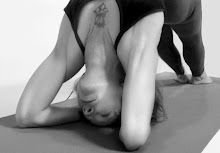A Zen Poem
Awakened, a sentient being is a Buddha.
Ignorent, a Buddha is a sentient being.
With wisdom, a sentient being is a Buddha.
If the mind is warped, a Buddha is a sentient being.
If the mind is impartial, a sentient being is a Buddha.
When once a warped mind is produced, Buddha is concealed within the sentient being.
If for one instant of thought we become impartial,
Then sentient beings are themselves Buddha.
In our mind itself a Buddha exists, our own Buddha is the true Buddha.
If we do not have in ourselves the Buddha mind,
Then where are we to seek Buddha?
Huineng translated by Philip Yampolsky
from the book Zen Poems
Everyman's Library Pocket Poets
published by Alfred A. Knopf
ISBN 0-375-40552-6
The beauty of Zen/Chan Buddhist practice is that one can contemplate the nuances of the nature of the universe without being impeded by others. One can choose to be subtly guided, or can sit in solitude. The practitioner reaches insight with personal practice, not by being force-fed the answers. The Buddhist knows the Sutras, of course, the core teachings/insights of the Buddha, but there have been more than one enlightened master; Once one begins with the Four Noble Truths -
There is Suffering.
There is an origin of Suffering.
The end of Suffering is possible.
There is a path to the end of Suffering.
- one may continue to embroider the tapestry with the beautiful threads that make life worthwhile.
Buddhism evolved out of Hindu/Vedic practice partially as a reaction to corrupt priests and a caste system gone haywire. The first Buddha was born a prince, and he walked away from wealth and privilege. His teachings drew followers from far and wide and transformed the Far East. From another Zen poem from the same book:
One flower opens five petals,
and the fruit ripens of itself.
Bodhidharma, according to Huineng


0 Comments:
Post a Comment
<< Home